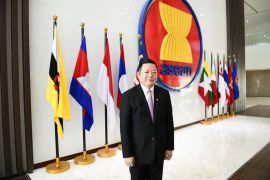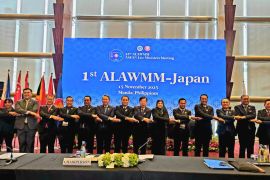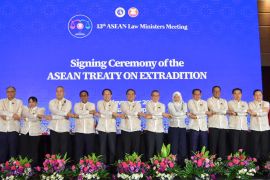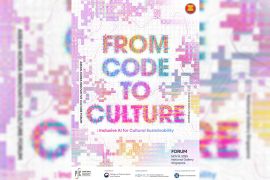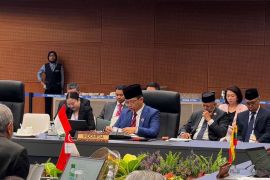"The issue was one of the topics raised by Singapore's foreign minister."Jakarta (ANTARA News) - Indonesia and Singapore agree that ASEAN should support the Code of Conduct for the settlement of the South China Sea problem in order to maintain regional stability, according to presidential special aide for international relations Teuku Faizasyah.
"We agree with Singapore that ASEAN member countries should negotiate and support the Code of Conduct (COC)," he said at the presidential office here on Thursday, when asked about developments with regard to the COC.
"The issue was one of the topics raised by Singapore's foreign minister, K Shanmugam, during his meeting with President Susilo Bambang Yudhoyono recently," Faizasyah added.
Ahead of the Association of Southeast Asian Nations (ASEAN) summit in Cambodia next month, he continued, Singapore and Indonesia share the opinion that the South China Sea problem should not cause conflict among ASEAN members.
Faizasyah stated that any disruption of stability in the region could negatively affect the economic conditions of the region.
"The ASEAN stability issue was also raised by CEOs from various countries during a recent meeting with President Yudhoyono," he added.
"We all know that more time and further consultations are needed to reach an agreement, but everything should be aimed at finding the best possible solution," Faizasyah said.
He expressed optimism that an agreement would be reached eventually but said he did not know how long would the process take.
"We hope it could be achieved as fast as possible. The process does not take place in a vacuum but in an environment that keeps changing," Faizasyah stated.
Four ASEAN members have claimed sovereignty over some parts of the South China Sea, which China considers to be its own territories.
At the previous ASEAN summit in Cambodia, the 10 member countries failed to issue a joint communiqu on the South China Sea conflict.
Therefore, Indonesian Foreign Minister Marty Natalegawa held meetings with his counterparts in many ASEAN countries, urging them to issue a joint communiqu on the dispute.
His efforts resulted in the ASEAN`s Six-Point Principles on the South China Sea.
The principles include the importance of concluding negotiations on the COC and respecting international laws such as the UN Convention on the Law of the Sean (UNCLOs) of 1982.
The ASEAN foreign ministers also agreed to rule out the use of violence and settle the dispute peacefully according to the UNCLOS of 1982.
(T.M041*P008/H-YH/INE/KR-BSR/A014)
Editor: Priyambodo RH
Copyright © ANTARA 2012

